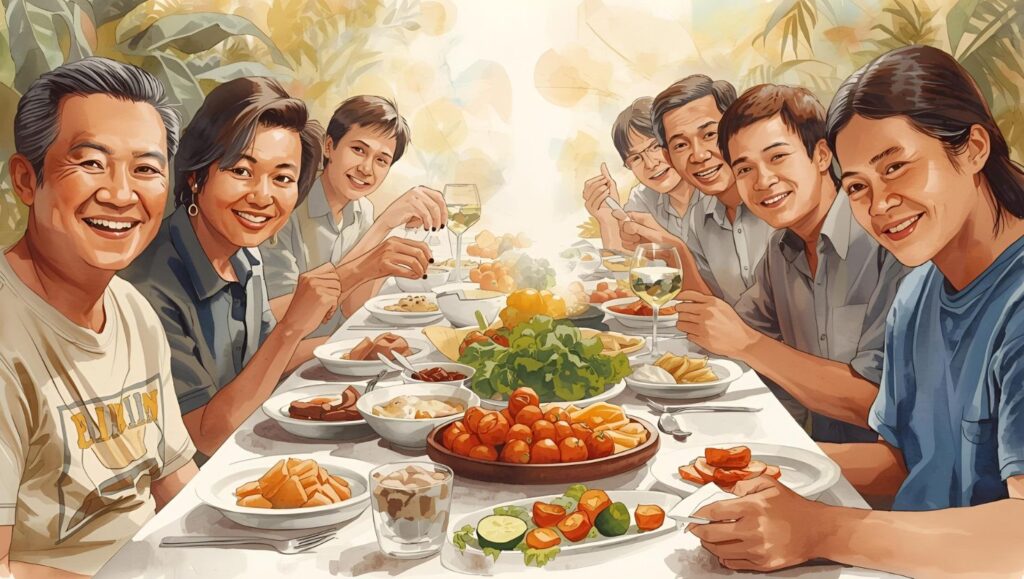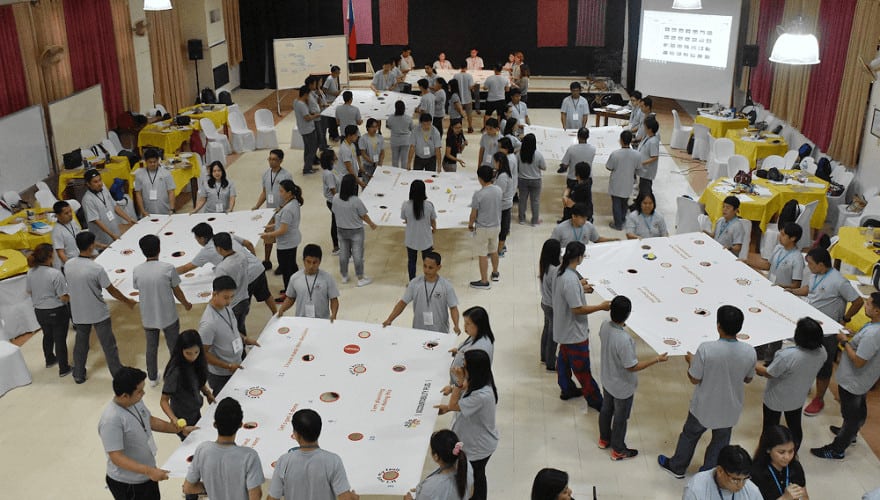Pakikipagkapwa-tao breaks down when work turns people into “resources,” and the cost is cold teamwork, tense conversations, and trust that slowly leaks. In this article, Jef Menguin explains pakikipagkapwa-tao as treating others as equals—with empathy, respect, and dignity—and shows where it gets misused as blind pakikisama. Practice the shift—see the person, not just the role—then share it at work so your culture becomes more human and more effective.
Pakikipagkapwa-tao is one of the oldest and strongest Filipino values. When you want employees to excel in customer service, make pakikipagkapwa-tao one of the driving values. With malasakit and kahusayan, you can easily make employees understand why delighting customers is easy. We already knew what it meant since our school days.
What is pakikipagkapwa-tao?
Pakikipagkapwa-tao is both an attitude and an ability to respect other humans as you respect yourself. As an attitude, Filipinos give you the respect you deserve as a human being. We do not discriminate against people based on color, creed, or wealth. As an ability, we recognize that we need to develop interpersonal skills so we can easily relate with others. Pakikipagkapwa-tao is also a learned skill.
Pay attention to two words: Kapwa and tao. It is a common mistake to translate the word kapwa as others in English. I translate kapwa as other-self. Being human (tao) is a shared identity. It is not the same as saying other people, but more of “we shared one humanity.”
This translation is philosophical, I know. But that’s what pakikipagkapwa-tao means. Something that Google cannot translate to foreigners reading this piece.
The etymology of the word person means the “sound behind the mask.” The word person is not the same as the word human. You can reinvent your personal brand, but you are always human.
So, even if you are mahiyain (shy), you are expected to learn how to socialize and relate with others. Because of this, we say someone is “marunong makipagkapwa-tao” if that person tries to connect with others.
Pakikipagkapwa-tao is more than socializing, though it is a good start. It is beyond empathy since you are not only putting yourself in another person’s shoes.
You recognize that the other person is a human being like you. So, the Lord’s commandment that says “love your neighbor as you love yourself” is pakikipagkapwa-tao.

Levels of Pakikipagkapwa-tao
Filipinos use various terms to describe the different levels of pakikipagkapwa-tao.
At the very least, we are expected to be civil with each other (makitungo). That means that even”enemies” must be civil to each other in social events. Some people say they don’t want to pretend (makipagplastikan), so they’ll leave instead. But those who stay must not make any trouble.
The next level is socializing (pakikisalamuha). We encourage people to interact with each other. One does not have to be a fly in the wall. We can always find things to discuss (schools, church, birthplace, et cetera).
Pakikilahok is to participate and engage. Lahok is also a word we use to refer to being an ingredient part of something.
Pakikibagay means that we have to conform. It is like saying that when you are in Rome, do what the Romans do. There is a good side to pakikibagay, of course. This means that you must adjust yourself to different situations.
Pakikisama means to go along with. In its positive sense, pakikisama means becoming a part of something. Pakikisama has a negative side too. It also means that for the sake of fake harmony, you’ll look the other way when a wrong is committed
Pakikiisa means being one with others. It is a call for unity.
Filipinos use these words when they talk of pakikipagkapwa -tao. However, none capture the essence of “respecting others as you respect yourself.”
And because of this, most of the advice I can give you is similar to developing interpersonal skills.
Explore how you can develop interpersonal skills in the workplace.
Learning Pakikipagkapwa-tao
When I was young, I learned that sharing food with neighbors is cool. Every time my grandmother cooks sinigang or tinola, she makes me bring some portions to our closest neighbor. Today, we teach kids that sharing is caring. But when I was younger, it was the normal thing to do.
I also remember that my grandfather shared some portions with our neighbors when he caught fish. Of course, you are not expected to share your catch these days if you intend to sell them. But no one prevents a fisher from sharing. So, they still share.
In grade five, some of my classmates brought extra food to share. I had nothing to share, but that was okay with them.
My intentions for writing this article are (1) to show you the value of this positive trait and (2) to teach you how to develop your interpersonal skills.
Discover the Filipino values that shape how we work, lead, and live—beyond slogans and speeches. Get the Values Starter Kit. Read the series, choose one value to practice this week, and watch how small shifts create real change.
The Importance of Pakikipagkapwa-tao
I am an introvert. I get to work faster and better when I am alone. And I have no problem being in my house the whole day.
During the quarantine, most people felt forced to stay at home. But, it was not the same for me. I was planting vegetables the whole day. I took care of my herbs and ornamentals/ And I didn’t worry about not seeing people.
When I was in the seminary, I received disciplinary action. My formator told me to stay in the confines of the seminary. My formator did not lift until the 90th day or three weeks after I left the seminary.
But I had no problem being in the confines of the seminary for 90 days. I reckoned I could do it for a year. I enjoyed it so much that I thought I could be a monk.
I am an introvert. That means I am comfortable being alone. I don’t get energy at parties and events. I don’t have to be the life of the party.
But I am not mahiyain (shy). I am a professional speaker. I train leaders. I make people cry; I make them laugh.
I can do this because I know the importance of pakikipagkapwa-tao. I developed interpersonal skills many introverts do not have.
Pakikipagkapwa-tao at Work
We Filipinos believe that to succeed, we must have strong interpersonal skills. In short, we must value pakikipagkapwa-tao.
And this is very good.
Pakikipagkapwa-tao means you recognize the presence of others in the workplace.
Some companies put us in cubicles. Not so different from spiders placed in matchboxes. We are not supposed to bother people with their work.
But Filipinos don’t work that way.
We expect new hires, for example, to find time to know the people they are working with. At the very least, you expect them to smile and greet you in the hallway.
We expect old employees to welcome the new ones.
So, even if you work in a cubicle, you must learn to go out of your way.
It is often said that in order for you to succeed at work, it is not what you know, but who you know. This is not entirely correct.
What you know is important. Who you know is important too. But more important than that is whether people trust you.
People won’t recommend you if you have no personal connection with them.
Pakikipagkapwa-tao is a value that workplace professionals must embrace. You are not working with machines; you work with human beings.
Human beings want you to recognize them as human beings too.
Pakikipagkapwa-tao in the Community
The Filipino sense of kapit-bahay means that they expect you to become good neighbors. Kapit-bahay means that your house is adjacent to each other.
But it may extend to the whole village.
Your neighbors expect you to keep your front yard clean. They can endure your karaoke singing as long as it won’t go beyond 10 pm.
It is okay if your dogs bark at night—dogs bark. But don’t walk your dog and have it poop in front of their house.
They’ll say that you are disrespectful when you violate these standard norms. Hindi marunong makipagkapwa-tao.
You can ask the older people in your community. They will tell you the norms that keep you are your neighbors’ good side.
What Is Personal Development?
You can learn interpersonal skills through training and experience. I recommend you explore the guide on personal development.
If you want Filipino values to show up as real behavior at work…
Let’s turn it into a culture shift experience.
→ Shift Experiences







